In the ever-evolving world of financial markets, understanding risk tolerance and loss aversion is only part of the puzzle. Let’s not forget the often-overlooked factor of uncertainty and its impact on our decisions. It’s important to understand that our ability to tolerate risk and our loss aversion are both impacted by uncertainty.
Good thing we got chatting to Garth Mackenzie, a prolific trader who shared plenty of exciting stories with us about his years working on the markets. He is also the host of his very own podcast, Talking with Traders.
You can catch the full episode by clicking on the thumbnail below, or you can listen to the podcast episode here. Also, you can carry on reading below. So many options…
As the unseen force shaping market dynamics, uncertainty becomes a pivotal factor in the delicate balance between risk and reward. We’ve previously discussed some of the little biases that arise because of our misunderstanding of risk and uncertainty. Biases like the Law of Small Numbers or Gambler’s Fallacy. As a reminder, you toss a coin and it lands on heads three tosses in a row, so surely the next toss will land on tails? No!
Remember, the odds are always 50/50. Past events will not change the probability of an event happening in the future.
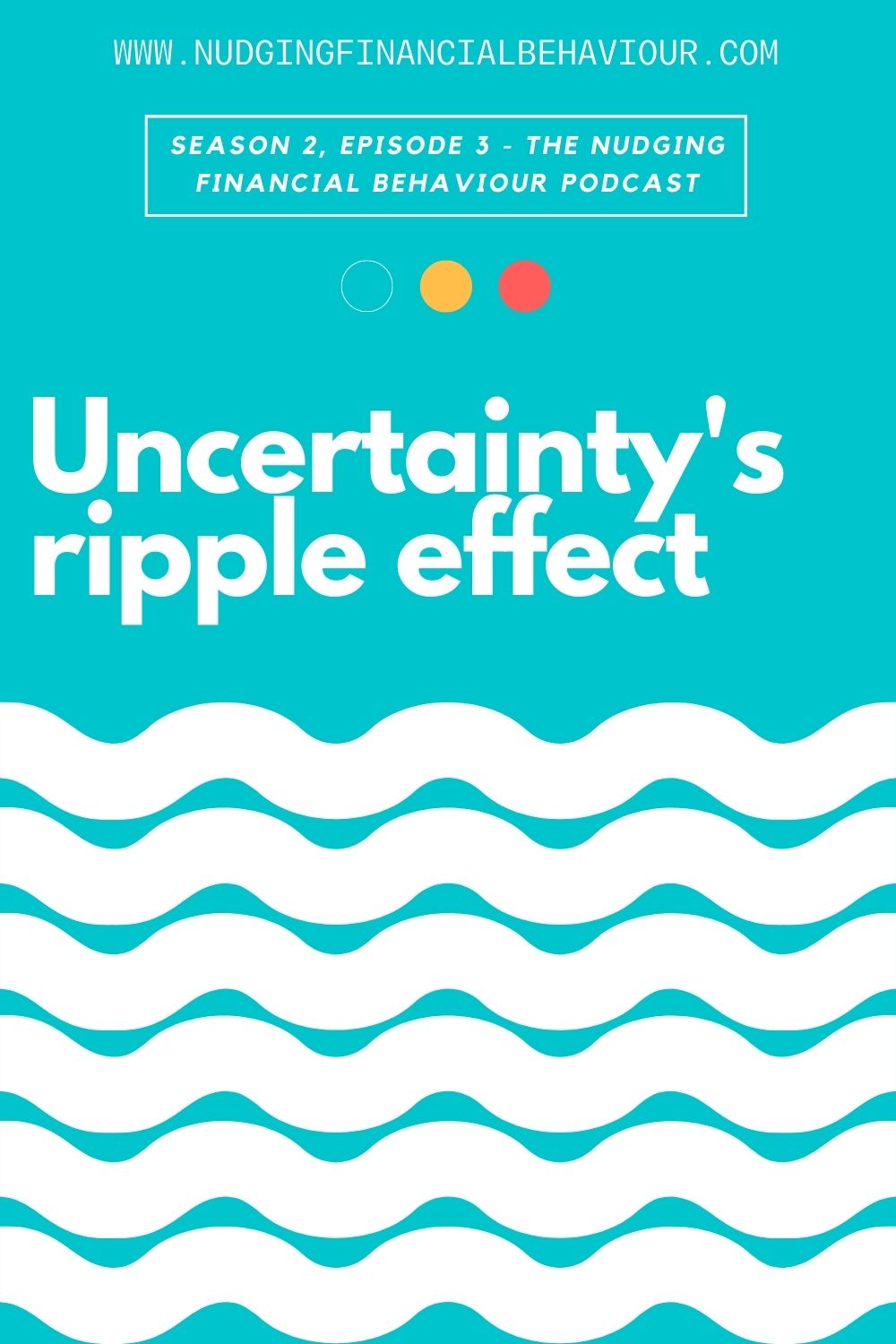
In the world of finance, uncertainty is the only certainty one can rely on.
There’s also the famous two urn experiment by Daniel Ellsberg which shows that as humans, we prefer defined risk. We’ll take a known probability over an unknown one, pretty much any day. To us, it’s taking the ‘safe’ choice.
But let’s get straight to our discussion with Garth. We know how our emotions trip us up when it comes to just general money decisions. But can you just imagine how our emotions are on steroids when we are actively trading our own money. Because Garth started trading at such a young age, we asked him what his journey has been like when it comes to understanding our emotions and how they have impacted his trading decisions?
You need to be indifferent, no matter what happens to your trade. Share on XOver the years, I’ve experienced lots of emotional ups and downs. That is just unfortunately part of the nature of trading… the emotional highs and lows can be quite high. And part of the process, I guess, is to actually try and develop a system, develop a strategy so that you can sort of flatten out the extremes of the highs and lows. Because a lot of the best traders that I’ve ever come across are very even keeled generally. They don’t get too down in the dumps when things are going bad. They don’t get too elated and excitable when things are going well. They try and remain relatively even keeled and stick to a strategy and just see the bigger picture. Because emotions, unfortunately, often are the enemy in trading.
You need to be able to accept that losses happen and that’s just the nature of trading. You’ve got to just try and keep the losses small, but no trader goes through this business without incurring losses.
It’s just like a restaurant owner has to bear the cost of purchasing raw materials or raw food. It’s a cost of doing business. And in trading, very much the same. Your losing trades: it’s part of the cost of doing business and you’ve got to accept that is part of the process.
But at the other end of the scale also, you’re going to have some pretty good times where you make good money, and your returns are flowing freely. And at those times you’ve also got to be on top of your emotions as well on the other end of the spectrum to ensure that you don’t become too over excitable and then start swinging the bat a little bit too hard and taking too much risk. So emotional control is very, very important as a trader.
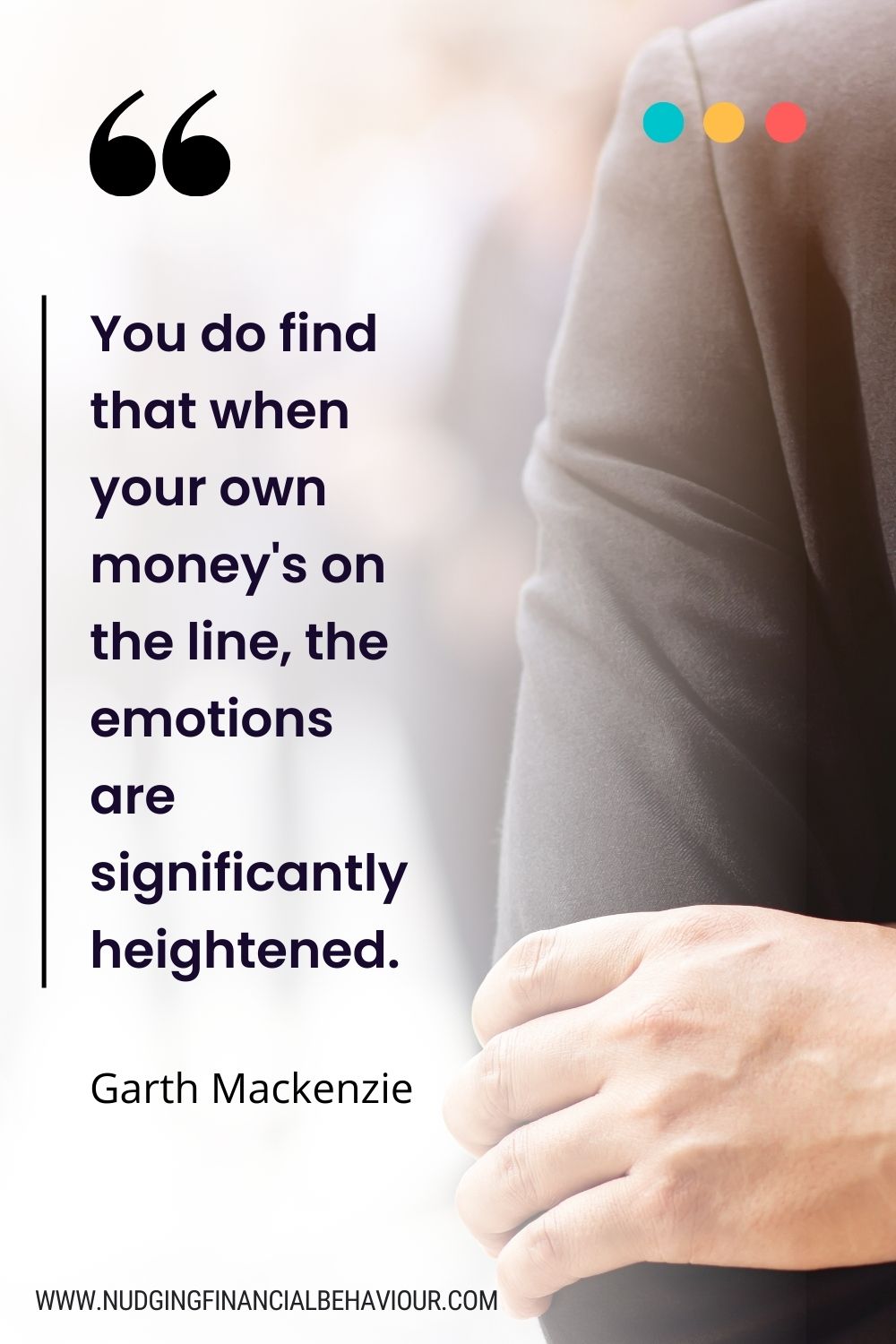
We discussed how, as humans, we don’t really understand statistics very well, so we can easily fall prey to a bias like Gambler’s Fallacy… three losing trades in a row, so you’re pretty sure that the next trade is going to be a winner…
We asked Garth to share his experience with this bias.
You know from my own experience as well as from being a broker and seeing other clients trade how they did. You know the notion that yeah, you’ve had three losing trades or four losing trades in a row and therefore the odds must surely be improving that your next trade is going to be a winner. It’s actually nonsense!
The reality is the probability, I guess, is always 50-50, right? The market’s either going up or it’s going down. So, it’s one of those two things. You can enhance the probability in your favour by having a good strategy and a good technique and methods that give you a higher probability than 50-50. But realistically, anything more than 65-70% long-term success rate is exceptional in this business.
Risk comes from not knowing what you’re doing.
You’ve got to be very careful of looking at the market and seeing that it’s been down five days in a row and then thinking it’s going to go up the next day.
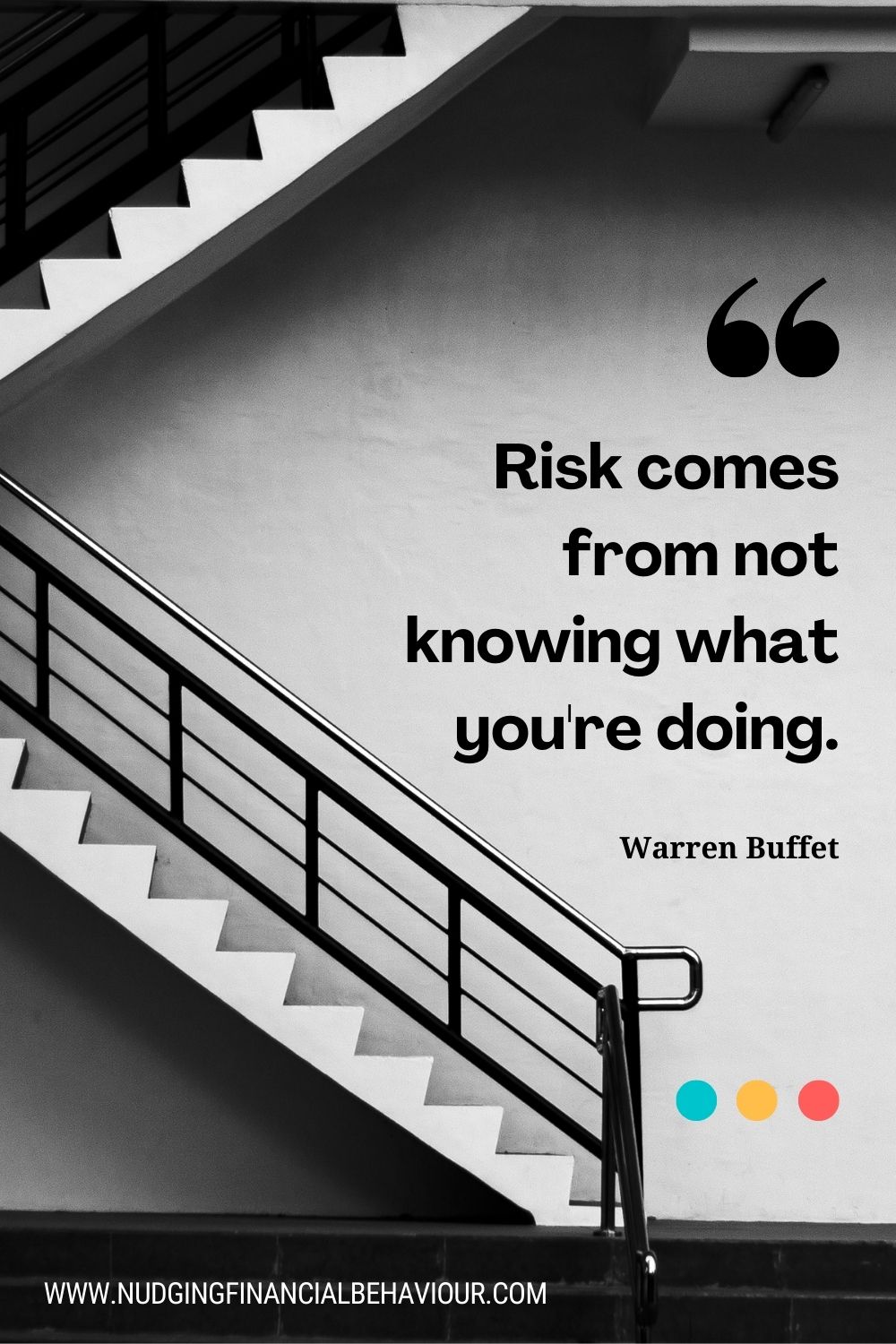
I see it particularly with traders that average down, and averaging down is a very, very bad habit. It’s basically where you buy and then the price goes lower. So, you buy some more and the price goes a bit more down. You buy some more, you know, until eventually you’ve got such a big position and you’re so deep under the water on this position that all of your rational thought goes out of the window.
And this doesn’t only happen when the markets falling, it can also happen when the market’s going up.
The thinking is, you know, it’s gone up and it keeps going up and it’s so overbought that it must come down. So, traders will short and short and short and short until eventually they end up getting squeezed out of that position as the market continues to rip higher.
Markets will inevitably move to the point of maximum pain. Or the point where they exert the maximum pain on the maximum number of people. And unfortunately, that’s often when you see the capitulation happen – either direction. It can be when the market falls, and it falls into a deeply oversold level and you suddenly find that there’s a vast number of traders that puke out at the bottom and the volume explodes.
And similarly on the other end of the spectrum, when you see the price going higher and higher and higher, you get what’s called a short squeeze. And a short squeeze is where… those who have sold short end up being forced to buy back at a significantly higher price than where they went into the trade. And unfortunately, if you’re averaging into a bad trade… that is an example of Gambler’s Fallacy, where you think because it’s just gone down and down and down, it’s got to go up. Or vice versa, because it’s gone up and up and up, it’s got to go down. It doesn’t always work that way.
So, with Gambler’s Fallacy, we think things are going to turn around. But be careful – that’s not always the case.
Then there’s the Hot-Hand Effect, which is now the opposite. You now think you’re on a winning streak… Insights from Garth’s experiences serve as a cautionary tale against overestimating one’s capabilities.
I’ve had first-hand experience of that many times earlier in my career. It’s where you have a couple of good trades and you feel happy about things, you feel like you’re the king of the world and every trade you touch turns to gold. And you start to then think, well, gee, I’m so good at this. You know, I might as well take bigger risks and bigger positions because I’m clearly on a hot streak here.
And in my experience, that is often the time when the market is about to dish out a good dose of humble pie. I noticed in my earlier years as a young trader, how often my best months were then followed by my worst months in the market. And why was that? That was because I probably got ahead of myself, became overconfident, started taking too much risk. Again, it’s a function of emotion, which as I said, is the enemy.
If you’re starting to feel like you’re invincible and that everything is going your way, you need to rein yourself in. Don’t get overconfident and allow emotions to get the better of you.
It’s very frustrating to have those emotional highs and lows because you can go from feeling on top of the world one month to feeling absolutely at the depths of despair the next month. And that’s what you need to try and be careful of as a trader, because, you know, managing your capital is very important in this game.
Manage your capital. Remember that. But also note that you have two types of capital that you need to manage…
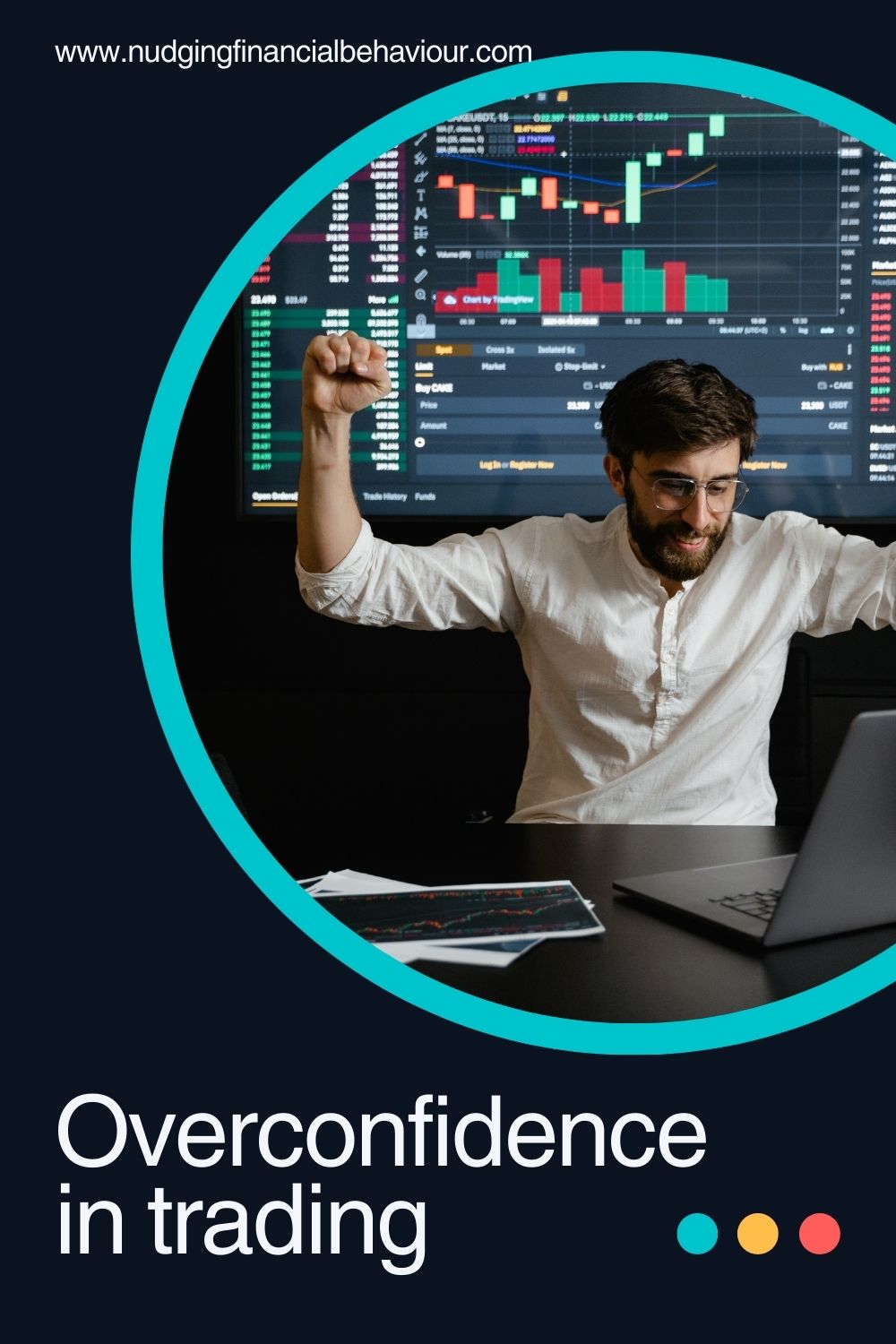
First, you have your financial capital, which is the money you’re trading with. But you also have your emotional capital. Just like you protect your financial capital, you’ve also got to protect your emotional capital.
You don’t want to find yourself being so despondent that you can’t even place the next trade. But at the other end of the spectrum, you also don’t want to find yourself becoming so overconfident and so elated that you start doing silly things and taking unreasonable risks. It’s important to keep your emotions in check and to manage your emotional capital, because that is a vital component of trading, to be emotionally stable.
As you may have guessed, your emotional capital is MOST at risk when we are going through big falling markets. Let’s not underestimate how those Black Swan events in the market heighten our susceptibility to these biases and irrational trading decisions.
It erodes your confidence, you know, day by day by day. And what you often find with a market crash is that it sort of starts slowly, but then it ends very, very quickly. And that very quickly part at the end is often an example of where the collective emotions of the market have started to take over and you start to see panic selling.
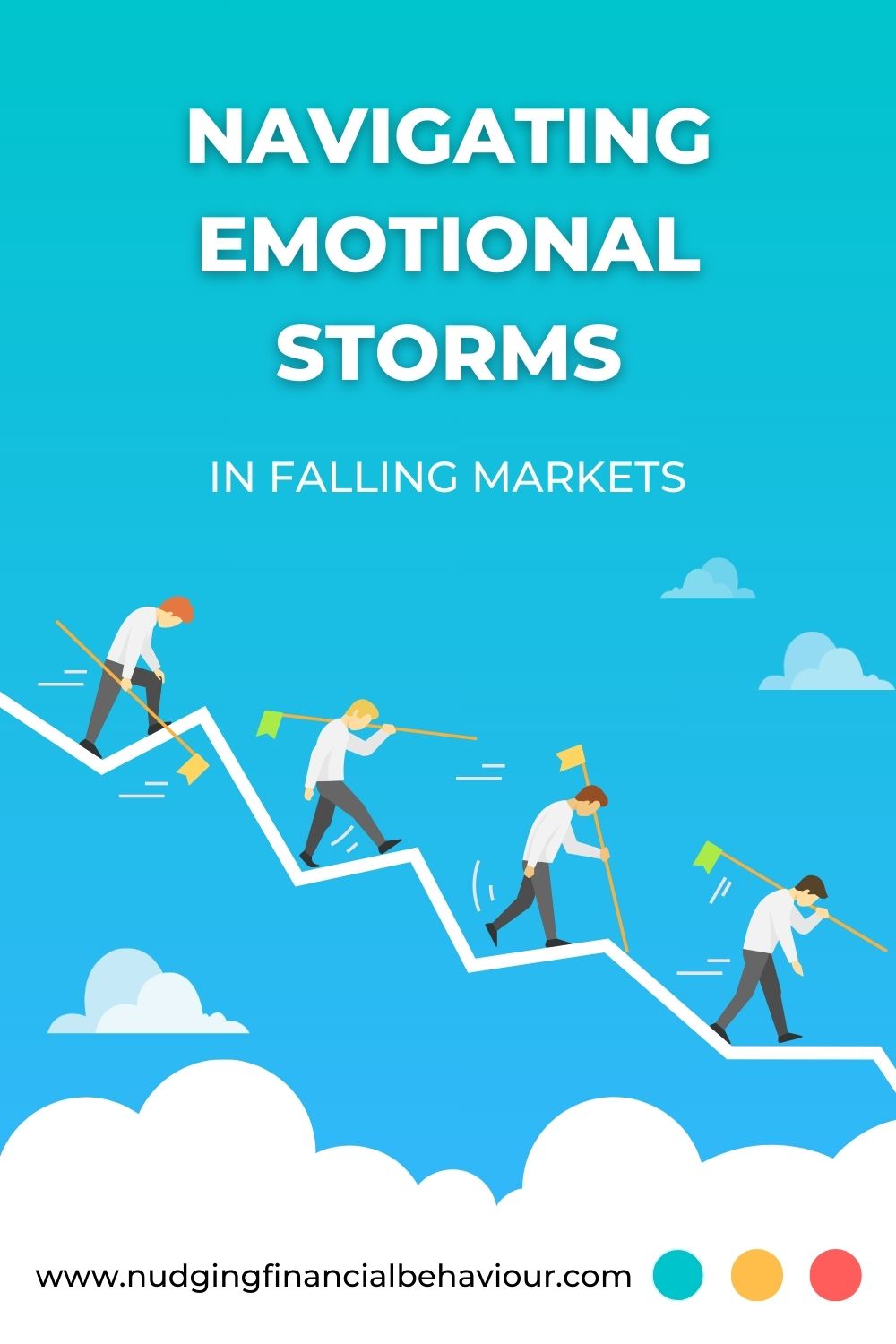
It’s funny because the stock market is the one place where when everything is on special, or it’s discounted by 20% or 30% people want to run out of the store. As opposed to, you know, typically when things are on sale, people want to rush in and buy. But in the stock market, it works the opposite way. When things are depressed and prices are falling, it seems that’s the time when people capitulate.
So, does Garth have any advice for us? He already shared that the best traders are even keeled about losses and gains, but does he have tips on how we can manage our emotional anxiety – our emotional capital – when it comes to our money decisions?
Let’s deal with trading first and then investing in second.
Trading is a lot more active. You’re going to be buying and selling a lot more frequently, but it’s also probably something you should be doing with a smaller part of your capital. You should be focusing a larger part of your capital on longer term, bigger picture investing. When it comes to trading and managing that emotional capital, have a strategy. There are many different ways to trade, but you need to find a trading strategy that fits with your personality style. And then also understand risk and know how much you’re willing to lose on a trade because, keep in mind, trading at the end of the day, it’s a probabilities game. There’s no certainty in this, but you’re looking for opportunities where you believe the probability of success is greater than 50-50. But you are going to have losing trades. So, I think go into it accepting that and knowing that, and also go in knowing how much money you’re willing to risk on each individual trade.
The goal of a successful trader is to make the best trades. Money is secondary.
Stick to a strategy that works over time, manage your risk, and manage your position sizing. Share on XThe golden rule out there is that you should never risk more than 2% of your capital on an individual trade. Personally I think that’s too much. Over the years as I’ve gotten older, I’ve found that I prefer to risk less than 1% of my capital on an individual trade. And what that means is that if the trade goes wrong and it reaches your stop loss point, you don’t lose more than that specific amount of your capital. If it’s 2% you don’t lose more than 2% of your capital. The nice thing about losing 2% of your capital is that you’ve still got 98% of it left.
I see it with a lot of traders where they go in and they risk far too much on individual trades, you know risking 10%, 20% on an individual trade and the problem with that is that if you string together three or four or five losing trades in a row, you very quickly wipe yourself out or you get into such a deep drawdown that it’s almost impossible to recover from that. So, manage your position sizes, manage your risk and have a strategy and try stick to the strategy because that’s the other thing I find with a lot of traders – amateur traders – is they tend to strategy hop. They find that one thing’s not working so they hop to another strategy and then hop to a different one and a different one.
In terms of investing, I think a similar thing applies in that you need to have a strategy, but I think also you need to be somewhat diversified. You need to have your sights on the bigger picture. So, when it comes to investing, understand that you’re not, you know, you’re investing for the next 20 years, 30 years. You’re not investing for next week.
You might be trading for next week, but when it comes to investing, it’s for the longer term. So, you need to try and keep your sights set on the longer term, on the horizon, and try and ride out the bumps in the road. Know that markets are volatile. There are crashes, there are ups and downs, but you need to try and not let short-termism get too much in the way of your long-term investing strategy because that can be very detrimental to your long-term strategy, especially when emotions get involved and market crashes and things like that happen. That’s unfortunately when a lot of people make their worst decisions, and it can be very costly in the long run.
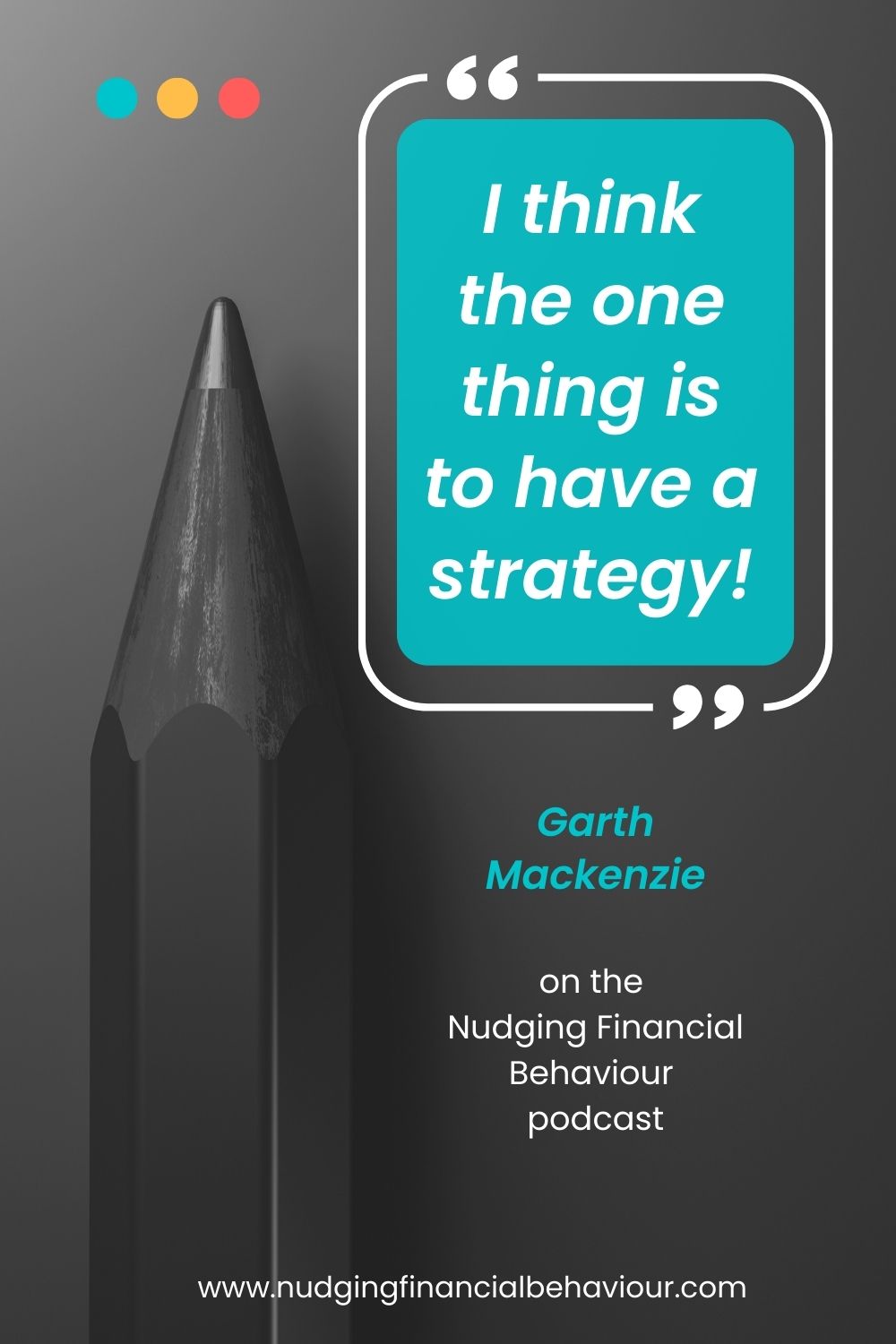
Some very wise words from someone who’s very experienced in all of these emotional responses. But it’s great to know that we’re not alone. Even experienced and skilled traders can fall prey to these internal biases. We’re all human!
We are all human and don’t think that the most experienced traders don’t make mistakes. We all do. We all still make mistakes. I think it’s just that perhaps we maybe we deal with them a little bit better, and we also accept that they come from time to time.
It’s so easy to fall into the trap of the Gambler’s Fallacy or the Hot-Hand Effect. But now that you’re aware of it, hopefully you’ll be less susceptible.
Now that you’re informed, it’s crucial to recognise that risk and probabilities operate differently in the presence of uncertainty. While there are instances of clear probabilities (such as coin tosses), the majority of situations involve some level of uncertainty. If there’s on key takeaway from this post, it’s the realisation that there may be occasions when you believe you’re in the midst of a winning streak, but in reality, you’re not.
Succumbing to the pitfalls of the Gambler’s Fallacy or the Hot-Hand effect is a common trap. However, armed with this awareness, hopefully you’ll be less susceptible.
Narrow framing – Narrow framing, the compromise effect, glossing, and the enabling frame. We need frames to make sense of the world. But they cause problems.
The anchored trader – Anchors tie us down and can have serious consequences for investors and traders. Don’t be the anchored trader.
Let us know in the comments below.
I am passionate about helping people understand their behaviour with money and gently nudging them to spend less and save more. I have several academic journal publications on investor behaviour, financial literacy and personal finance, and perfectly understand the biases that influence how we manage our money. This blog is where I break down those ideas and share my thinking. I’ll try to cover relevant topics that my readers bring to my attention. Please read, share, and comment. That’s how we spread knowledge and help both ourselves and others to become in control of our financial situations.

Dr Gizelle Willows
PhD and NRF-rating in Behavioural Finance
Receive gentle nudges from us:
[user_registration_form id=”8641″]
“Essentially, all models are wrong, but some are useful.” – George E.P. Box
